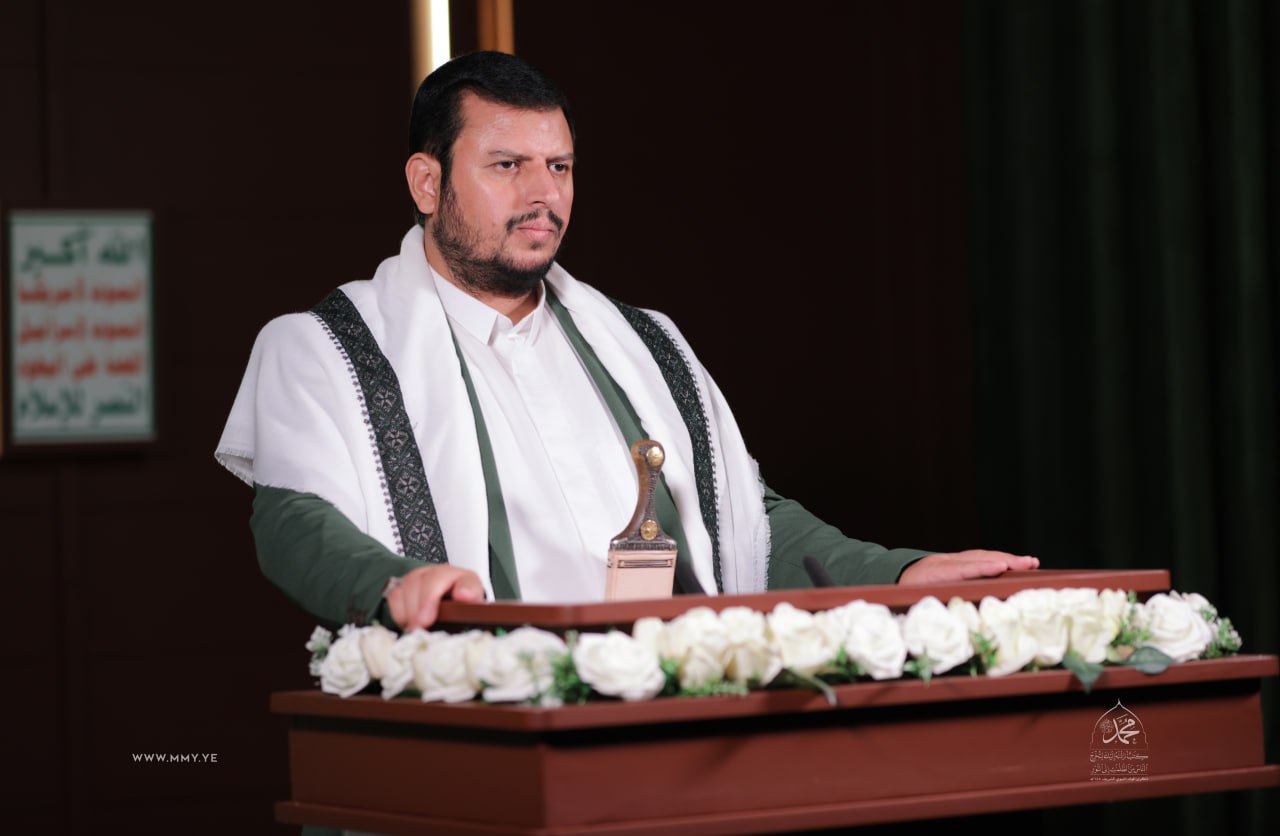In a historic speech marking the Prophet’s birthday, the leader of the revolution, Sayyid Abdul Malik Badr al-Din al-Houthi, outlined a vision for Yemen’s future that is both transformative and liberating. The speech highlighted the nation’s journey towards a new era where it assumes a leading and influential role at both regional and global levels.
Sayyid al-Houthi emphasized the unique identity of the Yemeni people, an identity rooted in faith and adherence to the divine message. This identity, shared with the peoples of the Islamic world, stands as a testament to the harmony between human society and its values, in stark contrast to the West’s blatant disregard for individual and societal dignity.
The leader of the revolution announced the first stage of radical change based on this comprehensive identity. This stage includes reshaping the current government with competent individuals and reforming official institutions to address inflation, boost production, provide services, and eradicate corruption.
This announcement was met with unprecedented popular support from within celebration squares, marking a new era for Yemen. For years, Yemen has been an exceptional model for historical transformations with its victories and achievements in steadfastness and overcoming challenges and conspiracies.
These successes have proven that there is a successful liberation project with wide influence and spread. Despite enemies’ efforts to obstruct it, this project has triumphed and entered a new path for construction. Everyone anticipates that its results will be no less exceptional than previous victories and achievements.
Building on this solid foundation of achievements, victories, and renaissance trends, Sayyid al-Houthi issued a “new advice” to countries of aggression. He urged them to end war, siege, occupation and depriving Yemeni people from their wealth. He warned them of “serious consequences” if they continue their hostile policies towards Yemeni people who confirmed that they “possess elements of power”.
In the same context, the leader reaffirmed during his speech the Yemeni people’s unwavering commitment to the issues of their nation, taking a principled stance against the conspiracies of normalization and the liquidation of the Palestinian cause. This serves to underscore that a resilient Yemen, fortified by its sacred project, is progressing towards fulfilling its significant role at both regional and global levels.







